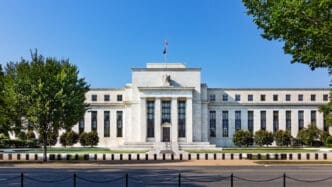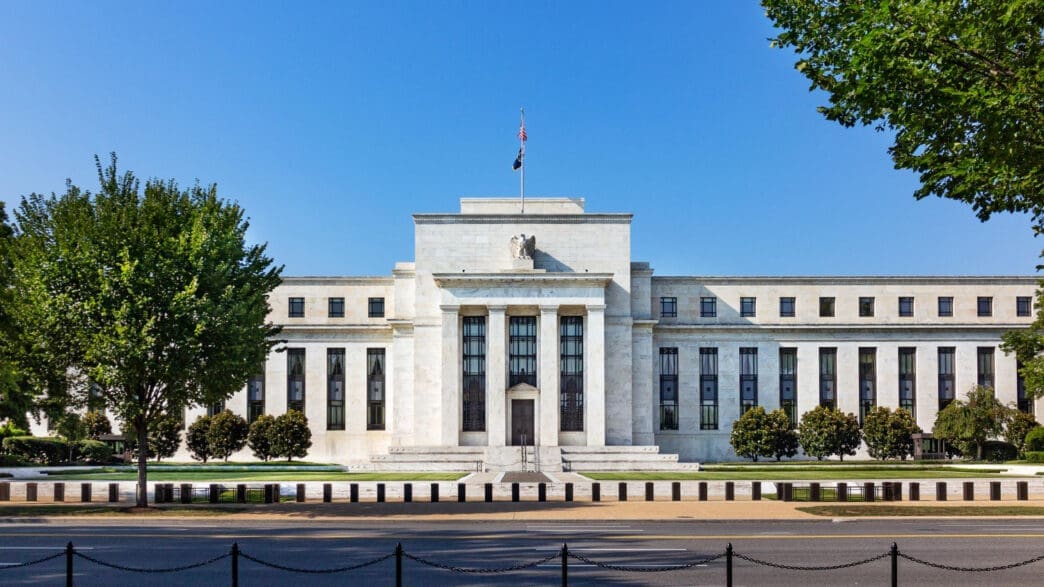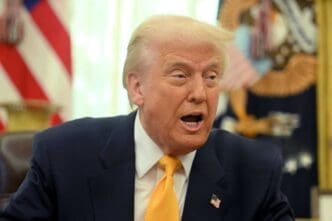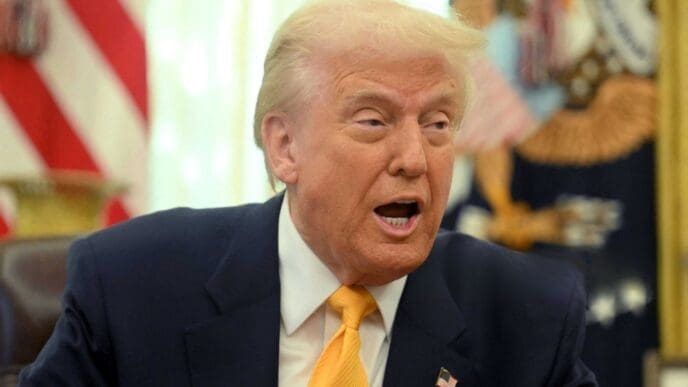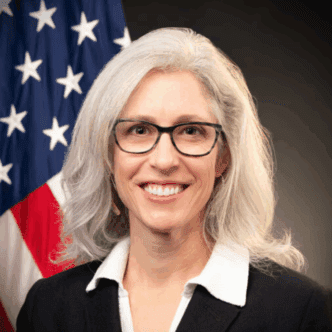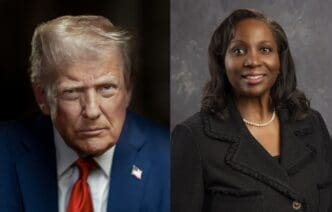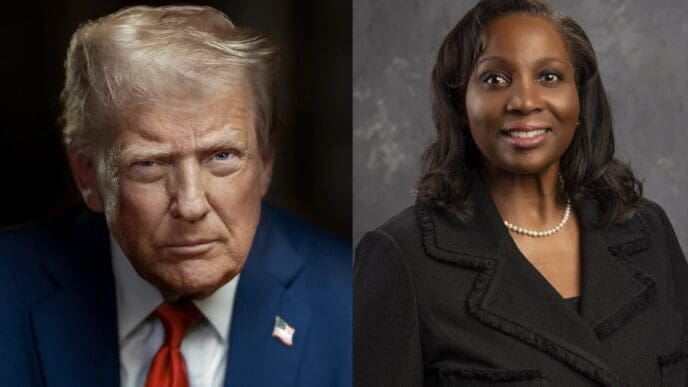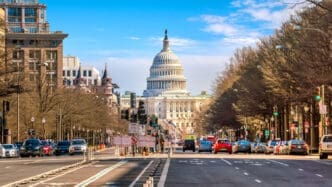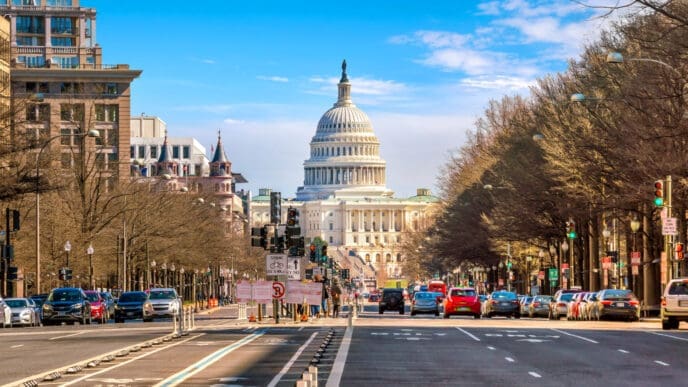Executive Summary
- Federal Reserve Governor Lisa Cook has filed a lawsuit challenging President Donald Trump’s attempt to remove her from the central bank’s board, with a hearing on her request for a temporary restraining order scheduled for Friday.
- Cook’s lawsuit argues that Trump’s removal violates her due process rights and that unsubstantiated allegations prior to confirmation are not “cause” for removal, while the White House maintains the removal is legal due to accusations of mortgage fraud.
- The legal challenge tests the boundaries of presidential authority and the independence of the Federal Reserve, with potential implications for the governance of financial institutions and future removals of Fed governors.
The Story So Far
- The current legal challenge stems from President Donald Trump’s attempt to remove Federal Reserve Governor Lisa Cook, citing allegations of mortgage fraud as “cause” for dismissal, a move Cook argues is unlawful and violates her due process rights given the lack of notice or hearing. This high-stakes dispute is crucial because it tests the boundaries of presidential authority over independent agencies and the long-standing insulation of the Federal Reserve from political interference, an institution the Supreme Court has described as “uniquely structured” to maintain its autonomy.
Why This Matters
- This lawsuit challenging President Trump’s attempt to remove Federal Reserve Governor Lisa Cook will critically test the boundaries of presidential power and the Federal Reserve’s long-held independence, potentially setting a precedent for what constitutes “cause” for dismissing officials from such insulated agencies. The court’s decision will determine Cook’s ability to continue serving, impacting her participation in crucial monetary policy decisions, and could significantly alter the political landscape surrounding the nation’s central bank.
Who Thinks What?
- Federal Reserve Governor Lisa Cook and her legal team argue that President Donald Trump’s attempt to remove her is unlawful, violated her due process rights, and that unsubstantiated allegations do not constitute “cause” for removal under federal law.
- President Trump and the White House assert that the removal is legal and justified by “cause” due to credible accusations of lying in financial documents, believing it improves the Federal Reserve Board’s accountability and credibility.
- Legal experts emphasize that the case presents a complicated legal challenge concerning presidential power and the Federal Reserve’s independence, noting the Fed’s “uniquely structured” nature and historical insulation from political interference.
Federal Reserve Governor Lisa Cook has filed a lawsuit in federal court in Washington, D.C., challenging President Donald Trump’s recent attempt to remove her from the central bank’s board. The legal action, initiated Thursday morning, seeks a judicial ruling that Trump’s removal effort is unlawful and that Cook remains an active member of the Federal Reserve. A hearing on her request for a temporary restraining order is scheduled for Friday at 10 a.m. ET, setting the stage for a high-stakes legal battle over presidential power and the independence of the Fed.
Legal Challenge to Presidential Authority
Cook’s lawsuit directly challenges President Trump’s authority, with potential implications for the independence of the Federal Reserve and the scope of presidential power. Her attorneys argue that Trump’s abrupt firing violated her due process rights under both the Constitution and federal law, which they contend require proper notice of alleged wrongdoing and a hearing.
“Governor Cook received neither notice nor a hearing before her purported firing,” her legal team stated in the suit, adding that the allegations predating her Senate confirmation have never been investigated or proven. The lawsuit also asserts that Trump is attempting to redefine “cause” in a manner that would permit him to dismiss any board member with whom he disagrees on policy, based on what her attorneys describe as “chalked up allegations.”
Trump Administration’s Stance and Allegations
Conversely, the White House has affirmed the legality of Trump’s decision. White House spokesman Kush Desai stated on Thursday that Trump determined there was “cause to remove a governor who was credibly accused of lying in financial documents from a highly sensitive position overseeing financial institutions.” Desai added that the removal “improves the Federal Reserve Board’s accountability and credibility.”
Trump’s basis for removal stems from accusations of mortgage fraud, which he cited in a social media post and a letter to Cook on Monday. These allegations, initially raised by Federal Housing Finance Agency Director Bill Pulte, involve two properties Cook owns, both reportedly designated as her principal residence. The Justice Department has indicated it plans to investigate these claims, though Cook has not been charged with any wrongdoing.
Cook’s lawsuit explicitly asks the court to declare that “an unsubstantiated allegation of mortgage fraud prior to a Governor’s confirmation is not cause for removal” under federal law.
Broader Implications and Precedent
Legal experts suggest Cook’s situation presents a complicated legal challenge, particularly concerning whether unproven allegations meet the threshold for presidential “cause” to remove a Fed governor. Jane Manners, an associate professor at Fordham School of Law, emphasized the potential impact, stating, “If we’re going to allow politics to determine the membership of the Fed, what does that mean for the future of our economy?”
While the Supreme Court has previously allowed Trump to remove leaders of other independent government agencies, it has historically drawn a distinction for the Federal Reserve. In May, the court described the Federal Reserve as a “uniquely structured” agency with a long history of insulation from political interference, suggesting its structure should not be altered.
The Federal Reserve itself has issued a statement indicating it will abide by a court’s decision regarding Cook’s challenge. The outcome of this case could determine whether Cook can continue serving in her role, which would allow her to vote at the upcoming September 16-17 meeting where policymakers are widely expected to deliver an interest rate cut.
The lawsuit brought by Federal Reserve Governor Lisa Cook against President Donald Trump’s attempt to remove her poses a critical test of the boundaries of presidential authority and the cherished independence of the nation’s central bank. As the legal proceedings unfold, the courts will weigh Cook’s claims of due process violations against the White House’s assertion of lawful removal for cause, with significant ramifications for the governance of financial institutions and the future political landscape.
